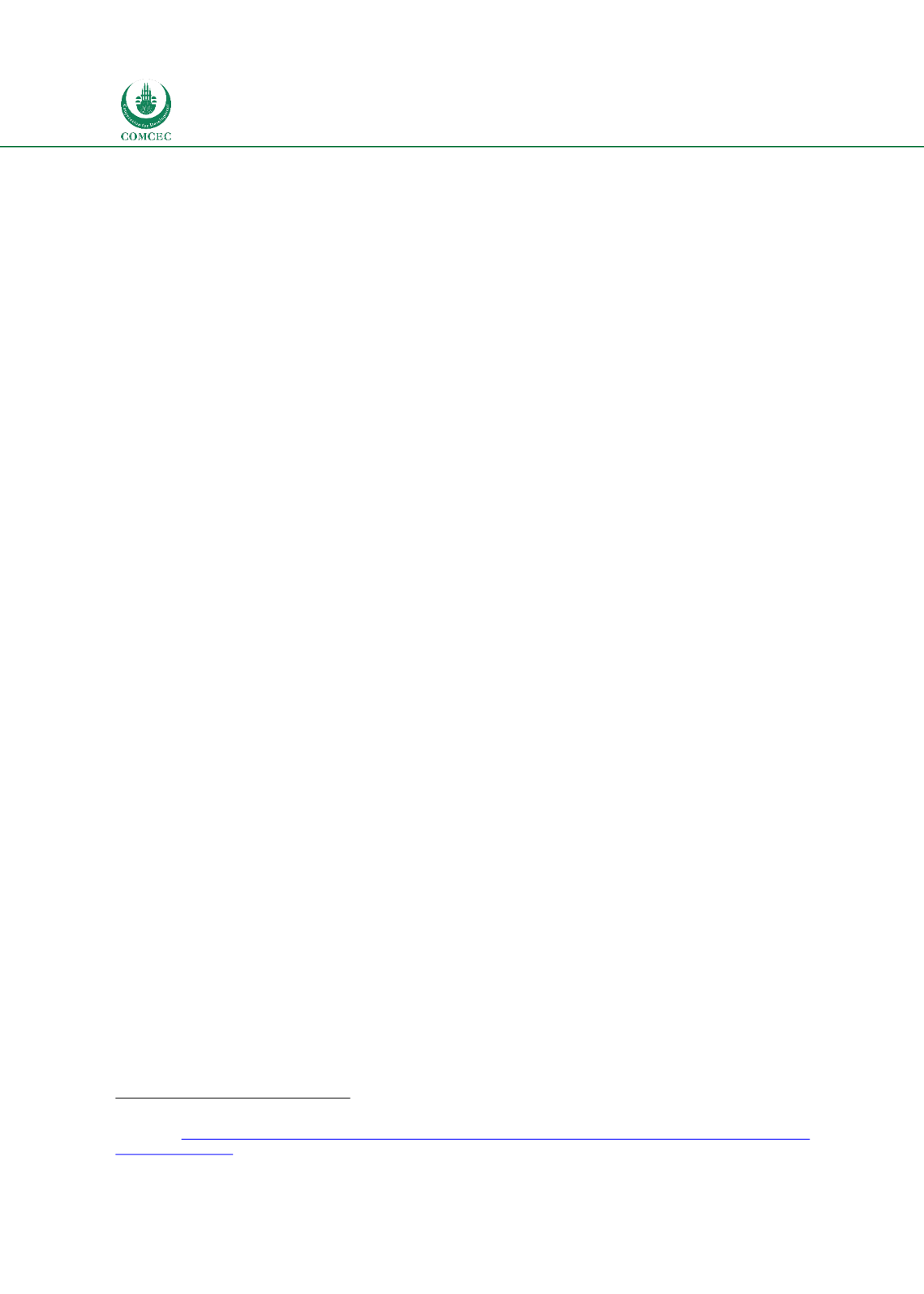

National and Global Islamic Financial Architecture:
Problems and Possible Solutions for the OIC Member Countries
182
developing an Islamic financial platform to further consolidate Hong Kong’s position as a
global financial centre (HKSAR 2007: 14). Other than promoting Hong Kong’s financial services
to major Islamic countries and regions, the focus will be on developing an Islamic bond market.
To accomplish these goals, Hong Kong Monetary Authority set up a dedicated team with the
financial sector to study relevant issues and make recommendations for introducing Islamic
debt offerings in Hong Kong (HKSAR 2007).
This has remained the strategy, with a focus specifically on attracting petrodollars for projects
in China. Recognizing the huge financing needs to sustain the high growth of the Asian
economies in general and China in particular, the regulators were aware that Hong Kong was
well-positioned to play the unique role as a gateway to China by providing an effective
platform. On the one hand the platform would enable Islamic investors to access investment
opportunities in Asia, particularly China and on the other hand allow institutions raising funds
to tap into the surplus funds and liquidity pool of the Islamic world (Pang 2014).
However, the tax changes necessary to provide neutral treatment as between sukuk and
conventional bonds have taken time to be put in place and were passed only in 2013. (Pang
2014) Subsequently the Hong Kong government made a sovereign sukuk issuance in
September 2014 and a second one in May 2015, each for USD1 bn. Both were listed in Hong
Kong, Kuala Lumpur and Dubai. These were effectively demonstrations of Hong Kong’s intent,
and of its legal framework. The successful issuances showed the confidence among
international investors of Hong Kong’s economic fundamentals and financial structure and also
the viability of sukuk issuance using Hong Kong’s platform (HKMA 2015).
As yet, however, there have been no other sukuk issuances through Hong Kong, though a few
Malaysian issues have been cross-listed on the Hong Kong Stock Exchange. Only one Chinese
firm has so far issued a sukuk, and that was in Malaysia, to finance projects in that country
(Chiang 2015).
60
One Hong Kong-based but Singapore-listed firm has also issued sukuk in
Malaysia. (Moody’s 2012).
As regards other aspects of Islamic capital markets, the first Islamic fund in Hong Kong was
launched in 2014 but is domiciled in Malaysia (Y-Sing, Liau 2015 and RHB 2016). Hong Kong
does not, as yet, have a significant presence in this market. There has been some interest in
specialised fund types, notably the Real Estate Investment Trusts, but nothing has yet come to
fruition.
As regards other sectors, an article in the Hong Kong Monetary Authority’s Bulletin in
December 2008 set out Hong Kong’s regulatory approach to Shariah issues in banking. While
emphasizing that HKMA is a secular regulator and does not review Shariah issues such as the
role or composition of the Shariah supervisory board or the validity of Shariah edicts, it
suggested that the Shariah compliance would be the responsibility of the banks. Among others,
the banks are made responsible to ensure Shariah compliance of all Islamic financial products
through a review process by the Shariah supervisory board before launching and carry out
effective monitoring and Shariah audit after the product is launched. Furthermore, HKMA
stipulates relevant information on Shariah compliance should be communicated to the
customers (HKMA 2008). The article also discussed more technical issues, such as the
treatment of sukuk for capital adequacy purposes. However, there is as yet no Islamic banking
operation established in Hong Kong, nor any Takaful operation.
60
Also se
e http://www.4-traders.com/COUNTRY-GARDEN-HOLDINGS-C-1412616/news/Country-Garden-Issues-Sukuk-in- Malaysia-21621148/















